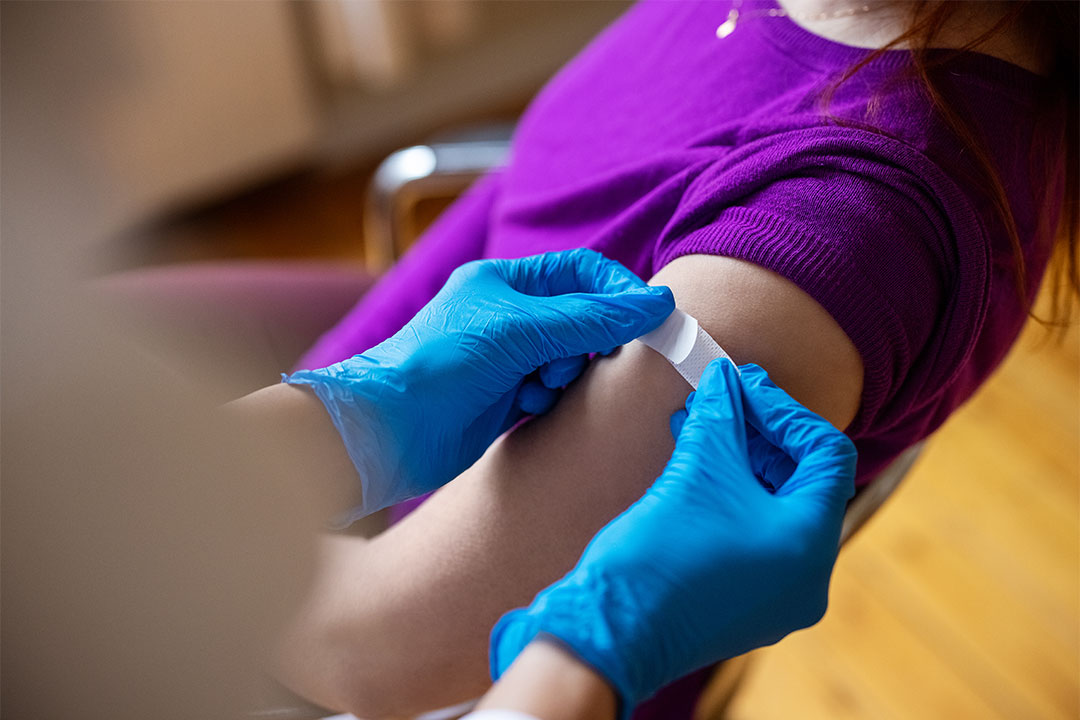What You Need to Know About the New RSV Vaccines
Respiratory Syncytial Virus (RSV) is a highly contagious, common virus that affects the lungs and airways of people of all age-groups, but similar to influenza, RSV can be very serious for young children, pregnant women and older adults. While RSV vaccines for children have been available for some time, a new development in an RSV vaccine for people 60 and older and for pregnant people was approved this year.
RSV is a seasonal illness, typically starting in the fall and peaking in the winter. You may have been sick with RSV before and might not have known that you had it because without a lab test to confirm the diagnosis, it is typically lumped together with other respiratory infections that cause cold-like symptoms. Most people have only mild symptoms such as a runny nose, sore throat, cough and a headache, that will go away after one to two weeks. However, for certain individuals at high risk including older people and babies, RSV can be severe or even life-threatening.
As you age, your body naturally loses some of its disease-fighting abilities. This means you're unable to fight off infections as well as you did when you were younger, and it may take you longer to recover from respiratory infections like RSV. According to the CDC, each year, RSV leads to about 60,000 to 120,000 hospitalizations and 6,000 to 10,000 older adults die of complications from RSV.
In the summer of 2023, the FDA approved two RSV vaccines for older people and two new options for infants and toddlers. Babies are susceptible to RSV because their immune systems are not fully formed, and their lungs aren't fully developed yet.
They also approved a vaccine for pregnant women that provides them with antibodies they could pass along to the fetus and protect their newborn babies from birth to 6 months from severe RSV. The maternal RSV vaccine is recommended during RSV season for women who are 32 through 36 weeks pregnant.
Unlike the flu shot and the COVID-19 vaccine, the RSV vaccines don't come with a universal recommendation. The decision whether to get one of the new RSV vaccines should be based on a shared discussion with your doctor.
If you don't fall into one of the high-risk categories and are otherwise healthy, your body can likely handle fighting off RSV. Older children, teenagers, and most adults have strong immunity from multiple exposures and rarely experience lower respiratory tract disease from RSV.
However, since RSV is spread through contact with contaminated surfaces, everyone should take additional precautions in the fall including washing hands often, keeping hands away from your face, avoiding close contact with people who have cold-like symptoms, cleaning frequently touched surfaces such as mobile devices and doorknobs, and staying home when you're sick.
If you have additional questions about the RSV vaccine, talk to a member of your healthcare team.
